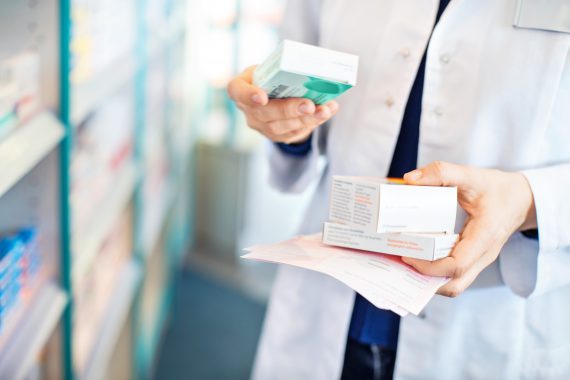Dispensing GPs are more likely to prescribe higher cost drugs, finds study

Dispensing practices in England are more likely to prescribe higher cost drugs compared to non-dispensing practices, according to new research.
Researchers from University of Oxford, Imperial College London, the Institute for Global Health, and the London School of Hygiene and Tropical Medicine investigated a list of drugs with high acquisition costs that are no more clinically effective than those with lower acquisition costs.
The study, published in the BMJ Open, found ‘dispensing practices were more likely to prescribe high-cost drugs across all classes’, with GPs negotiating lower prices on higher cost drugs in order to generate additional income, as they are still reimbursed at a standard rate.
The research team said while most doctors do not prescribe high-cost drugs when there are low cost alternatives, some do – particularly dispensing GPs.
In response, they called for a review of processes which address such behaviour, arguing it could help save over £7m a year.
One in eight practices in primary care in England are dispensing practices – where patients can pick up their medication on site – and are located predominantly in rural areas.
The researchers analysed prescribing data across 7,836 practices with a mean patient list of 7,258 people.
Comparing non-dispensing and dispensing practices, the researchers looked at specific high-cost drugs including statins, proton pump inhibitors, ACE inhibitors and angiotensin receptor blockers.
The mean cost per dose was calculated separately for dispensing and non-dispensing practices.
The study – the largest one conducted on dispensing practices in England – said: ‘It can be seen that dispensing practices are significantly more likely to prescribe drugs from the list of higher cost products across all four categories.’
‘For all classes of drug, except PPIs, dispensing practices appear to be over-represented among the highest prescribers of high-cost drugs,’ it continued.
The authors said: ‘We found that doctors in England rarely prescribe high-cost drugs where there are equally effective low-cost alternatives, but that doctors with a potential financial conflict of interest through working in a dispensing practice are significantly more likely to prescribe high-cost options, for four commonly prescribed classes of drug.
‘Total cost savings available, if doctors in dispensing practices were to prescribe drugs at the same price as doctors in non-dispensing practices, are £7,546,502 per year.’
‘We strongly suggest that existing processes to identify and address problematic prescribing behaviour should be reviewed, with their costs and evidence base assessed,’ they added.
This comes as pharmacists have been given the power to swap GP prescriptions for alternatives during shortages.
The Human Medicines (Amendment) Regulations 2019 came into force at the start of the month, meaning during shortages pharmacists can alter the strength, quantity or type of drug, without GP permission – as long as it has a similar effect as the original.
Pulse July survey
Take our July 2025 survey to potentially win £1.000 worth of tokens

Visit Pulse Reference for details on 140 symptoms, including easily searchable symptoms and categories, offering you a free platform to check symptoms and receive potential diagnoses during consultations.










